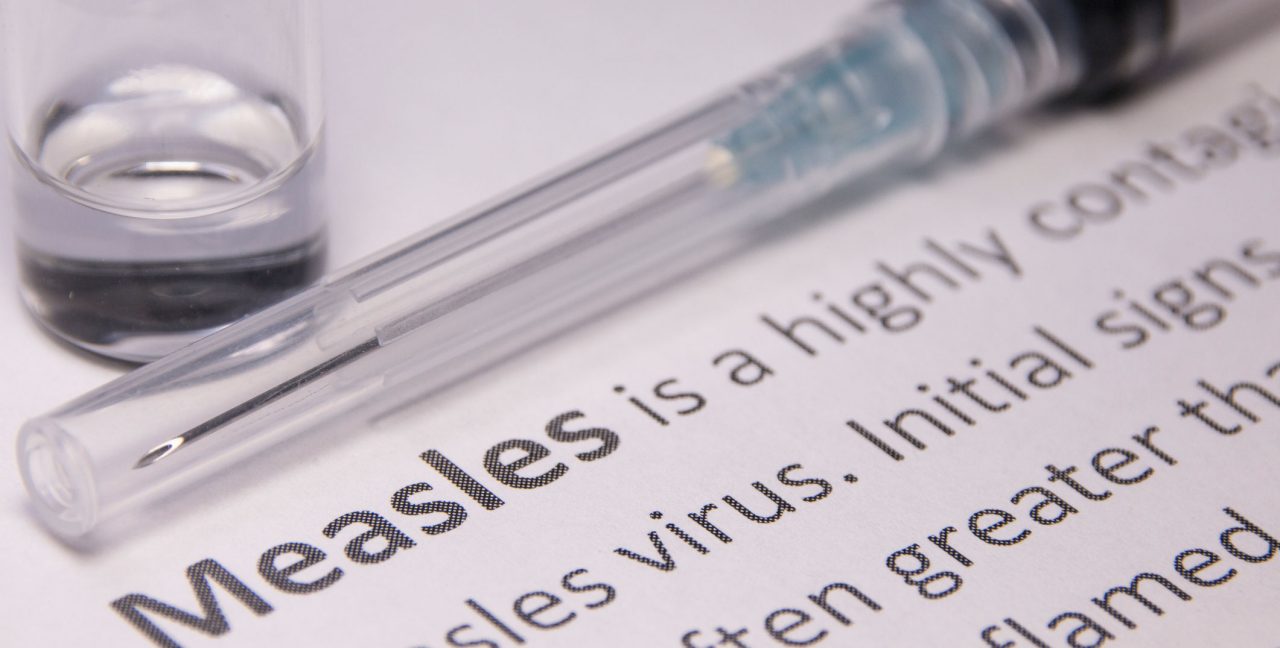Measles Symptoms and Treatment

Protect your family against a potentially deadly infection: learn what are the measles, how measles is spread, and what the MMR vaccine is.
What are the measles?
Measles is a highly contagious disease caused by a virus. It mostly affects children, though adults can catch and spread it as well.
Measles does not have a specific treatment, and most people who catch it will recover in two to three weeks. Once you have had measles you are immune, even if you are exposed in the future. However, about 30 percent of measles cases have serious complications. These include pneumonia, encephalitis, meningitis, seizures, neurological damage, coma, and blindness. Some of these complications can be fatal.
Children under age five and elderly adults are most at risk for severe complications or death due to the measles. Pregnant women who catch the measles are at an increased risk for premature labor and miscarriage.
YOU MIGHT ALSO LIKE: What Everyone Should Know About Measles
What does measles look like?
Symptoms of measles generally begin one to two weeks after you are infected. The first symptoms are cold-like and include fever, runny nose, cough, muscle pains, and red, watery eyes. Two or three days after symptoms begin, you may develop white spots inside your mouth.
The primary symptom of measles, however, is the distinctive rash that appears three to five days after symptoms begin. Knowing what the measles rash looks like is the best way to recognize whether you have the measles.
Measles looks like small, flat, red bumps that begin at the hairline and spread down the neck, torso, arms, legs, and feet. These spots are often very close together and may appear joined. Smaller, raised bumps sometimes develop on top of the flat rash.
This rash is generally accompanied by a very high fever, around 104° Fahrenheit. In uncomplicated cases of measles, the fever and rash both subside after a few days.
How is measles spread?
The measles virus is spread when an infected person coughs or sneezes. Direct contact with an infected person, or with things they have touched, can also spread the disease. The virus can be transmitted from person to person four days before and four days after the rash appears.
Measles is highly contagious. According to the Centers for Disease Control and Prevention, it spreads so easily that, if one person has it, 90 percent of the non-immune people he or she comes in contact with will catch it as well.
Measles does not have to be transmitted directly from person to person. After someone with measles leaves an area, the virus can also remain in the air and on surfaces for up to two hours, and anyone in that area is at risk for developing the disease. The virus can incubate for as few as eight or as many as 21 days, which means that people who have been exposed may not show symptoms for several weeks.
Because measles is so dangerous, local health departments will generally issue warnings when a case is confirmed. After a 2017 case of measles was discovered in Maine’s Franklin County, the Maine Center for Disease Control and Prevention notified the public that they may have been exposed if they were in certain locations at specific times.
This sort of warning system is possible because measles is so rare in the United States; the most recent case in Maine before the 2017 incident was in 1997, although a serious outbreak occurred in 21 states and Washington, D.C., in 2015.
In other parts of the world, however, measles is more common, including in parts of Europe, Africa, and Asia. It is important to make sure you and your family are protected against the measles before you travel abroad.
What is the MMR vaccine?
Because measles spreads so easily, the best way to protect against it is to get vaccinated.
Protection against the measles is included in the MMR vaccine, or measles, mumps, and rubella vaccine. In the United States, this vaccine is delivered in two doses between 12 months and six years of age. Teenagers and adults who do not have immunity to measles can also receive the MMR vaccine. If you have not been vaccinated, talk to your doctor whether you should receive the vaccine.
The MMR vaccine has proved highly effective at reducing measles worldwide. The World Health Organization reports that between 2000 and 2015, the measles vaccine prevented around 20 million deaths and resulted in a 79 percent decrease in cases of measles around the world. Before vaccination was widespread, measles infections caused about 2.6 million deaths every year, most of them children younger than five.
Because most people in the United States receive the MMR vaccine in childhood, measles has been considered eradicated in the U.S. since 2000. However, some cases do occur when people are exposed to the measles during foreign travel and bring the virus home with them. These occasional measles outbreaks are most likely to spread in areas with low vaccination rates and are particularly dangerous for children and pregnant women.
Updated:
March 26, 2020
Reviewed By:
Janet O’Dell, RN